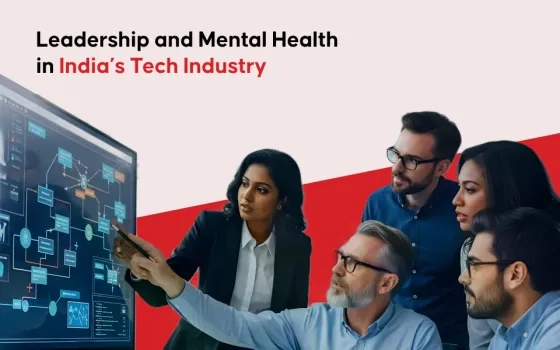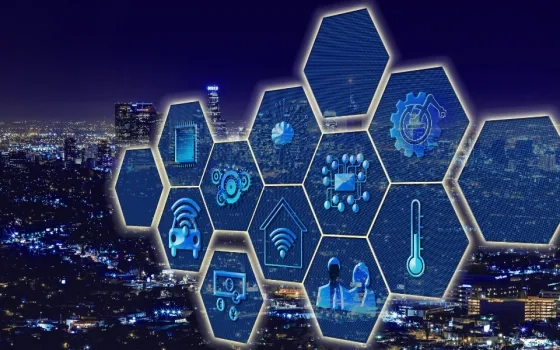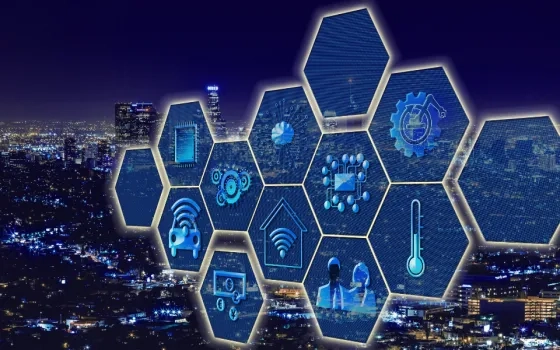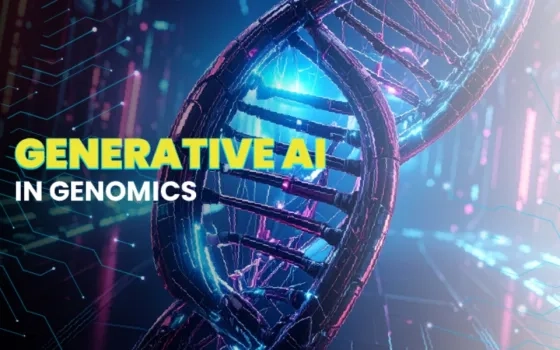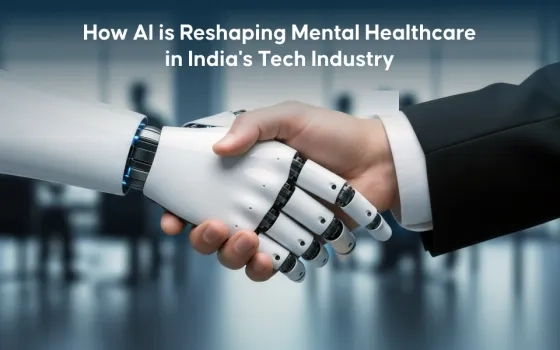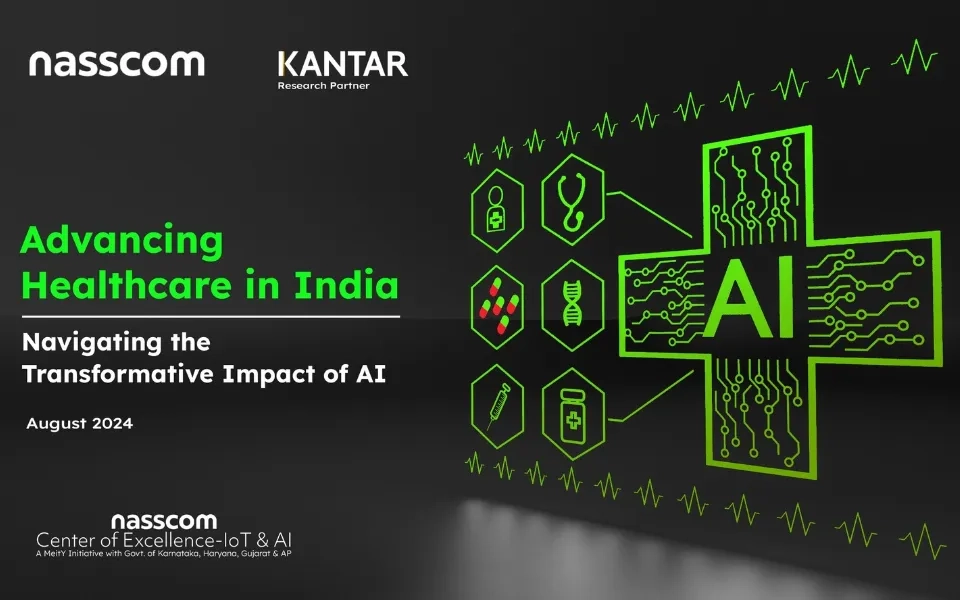The lifesciences sector was witnessing a windfall in India at the turn of the millennium. This was the time cities like Bangalore and Hyderabad consolidated themselves as the go-to hubs for R&D in this field. The timing to establish a healthcare company focused on healthcare R&D and related management services could not have been better. Founded in 1998 by Dr Rajesh Nair, Anand Kiran, Manish Gupta, Dr. Sanjay Parikh and Gaurav Kapoor, Indegene started out as a pharma marketing & communications company. Today, they are a global healthcare solutions company working with almost every major life sciences company in the world, in addition to a number of mid-sized and small-sized companies.
Manish Gupta, one of original founding members and CEO of the company speaks to us on Indegene’s success story in the past decade, the role played by technologies like AI in enhancing their pipeline of offerings, how they scaled their business with no external funding and managing to navigate through challenging business climes such as COVID19.
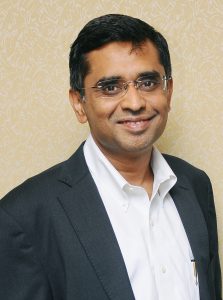
Manish Gupta, CEO, Indegene
Tell us about the scope of your business
We are a global healthcare solutions company with around 2,500 employees across offices in Bangalore, Mumbai, Shanghai, Singapore, London, Basel, Toronto, Princeton, Atlanta and Los Angeles. We work with almost all the big life sciences companies and a large number of mid- and small-sized companies. This includes Medical devices and Biotech firms. Our offerings and client partnerships can be classified into three buckets:
- Running centers of excellence for Enterprise marketing operations – creating content, managing data, delivering advanced analytics and executing omnichannel campaigns and Content development and data management for safety, regulatory, clinical and medical affairs. These COEs span multiple brands, therapeutic areas and more than 100 countries globally.
- We have a SaaS Customer Experience product in a strategic relationship with Microsoft called Omnipresence.
- Co-Commercialization of products along with lifesciences organizations – We take entire sales and marketing responsibility of products (in cases of Biotech we also take on full regulatory and safety responsibility as well) to drive prescriptions. Most of these deals are on a gain share basis and are being done in US and China.
How did you go from a marketing company for pharma majors to one that is leading content production in life sciences?
Indegene was founded on the premise of bringing Medical Expertise and Technology together to drive effectiveness in healthcare. This is a core part of the company DNA and has therefore been embedded in all our solutions, ever since we started. The first monetization of this happened to be in pharma marketing and medical communications in India two decades ago. Since then, we have evolved into a global healthcare solutions company that is enabling life sciences organizations bring products to the market using modern medical and commercial capabilities and operations. A manifestation of this evolution has been the leveraging of our early success in delivering content solutions for pharma marketing in India to create a global powerhouse which combines medical expertise with AI/NLP to drive modernization, automation, excellence and efficiency in the entire pharma content supply chain.
Today, access to healthcare data has opened up but there is a challenge of integration, and eventually capitalization. How is Indegene poised to utilize this opportunity using tech like AI?
Healthcare data is indeed extremely vast and voluminous. The availability of these datasets has thrown up a significant number of use cases and opportunities to deliver more value for patients. Indegene is already helping the global life sciences industry to unlock value from data in the following domains:
- Using real world healthcare data to drive efficiency and effectiveness of clinical trials. We are using EMR, claims, safety, trials, genomics data, etc. to design clinical trials protocols more sharply, find the most appropriate patients and investigators for recruitment in trials, auto- authoring of various clinical trials documents.
- Driving more targeted, individualized content messaging to physicians and patients for digital sales and marketing. By using the same data sets to better understand patient journeys, and develop more granular profiles with a deeper understanding of physician knowledge and networks, we are able to deliver more targeted messaging and hence bring down S&M costs from 20%+ by almost half.
Healthcare SaaS is being reckoned as a fast-growing sector. Given that you have a two-decade headstart in this area in India, how is Indegene setting the precedent for managing healthcare data responsibly?
In our businesses with healthcare & lifesciences, we handle two crucial types of personal information that includes sensitive personal information related to healthcare analytics (such as patient data, disease profile, etc.); and low risk personal information for commercialization purposes (such as first and last names, contact information, etc.)
Our data privacy management framework is designed to comply with most data privacy laws like GDPR, PIPEDA, PDPA, CCPA etc. Our privacy management framework has a modular structure, i.e. all facets of personal data privacy management at the time of personally identifiable information identification, collection, processing, transmission, storage and destruction can be controlled to comply with various regulatory requirements depending on the operations associated with personal data handling.?
Our data privacy management framework, based on the British Privacy Standard BS 10012:2017 A1 2018, allows data privacy management both as a data controller and a data processor.
India is being reckoned as the hub for lifestyle diseases like diabetes, cardiovascular illnesses & cancer. What trends can you deduce on how these diseases can be managed/treated based on the data you have?
We have quite a bit of experience in running patient support programs on behalf of pharma companies mainly for chronic illnesses. The objective of such programs is to provide a more holistic approach to patient management rather than just making it all about the pill. We combine on-the-ground, call-centre based and web-based services to help the patient understand his or her illness better, access healthcare resources and comply with prescribed treatments and lifestyle changes. Given that we have run some of these programs over several years, we have accumulated vast quantities of data on patient behaviour, treatment paradigms, patterns of disease progression and trends in patient adherence. We do extensive analytics to correlate patient attributes to specific behaviours and outcomes. These insights inform how we personalize patient programs and journeys in future. Nowhere is this more relevant than in chronic illnesses with a vast patient population such as diabetes, cardiovascular diseases and some forms of cancer.
The govt is actively working to enable technology adoption in healthcare today, esp in rural areas. Is this a potential area of interest for Indegene?
We would be interested in partnering with NGOs doing this as part of our CSR activity.
Tell us about the Indegene Omnipresence and your latest partnership with Syneos Health. Why is this a significant milestone for you?
Indegene has been fairly acquisitive and has had 7 successful acquisitions over the last 6-7 years. The Syneos investment into Omnipresence was the first time we bought an external partner into one of our subsidiaries. Omnipresence is the next generation customer experience cloud specifically designed for the life sciences industry and promises to be at the bleeding edge of how products will be commercialized in future and how companies will engage with various stakeholders. In this regard, our partnership with Syneos is truly synergistic.
Healthcare, while holds tremendous promise, is also one of the most heavily regulated sectors. Tell us how tech plays a role in fast-tracking processes, policy laggards and the like?
We believe that technology is just an enabler though a powerful one to drive better patient outcomes. Technology, by itself, will not play a role in fast tracking the regulatory process. Instead, the pressures on the healthcare system driven by an ageing population, chronic diseases and the need to increase access to healthcare are the factors that are pushing the system to fast track processes. Organizations and initiatives that can move the needle on efficiency, effectiveness and reach while mitigating risk will be the ones that would be able to move fast through the regulatory process. We are seeing regulators especially the USFDA being very open to ideas using technology.
Currently, the global business community is facing a slowdown owing to COVID19. However, this is a golden opportunity for tech to ensure Business Process Continuity. How are you assisting your clients across markets at this time?
The spread of COVID-19 has had a direct impact on the ability of sales representatives in the life sciences industry to have face-to-face conversations with physicians. This has caused our clients to ramp up their digital marketing activities and to use more non-personal channels of stakeholder engagement. To enable them do this, we are being asked to deliver more digital content and run more agile, data-driven omni-channel campaigns. We have been able to do this with virtually no disruption because of the heavy use of AI automation in our operations.
This is part of our ongoing series TechVoice, where we bring to you the leaders of the industry talk about the latest in innovation, technology and trends in their industry sectors. If you want to contribute, write to sindhuja@nasscom.in
For more updates, follow NASSCOM CoE IoT-DSAI on LinkedIn, Twitter, Facebook, and Youtube








